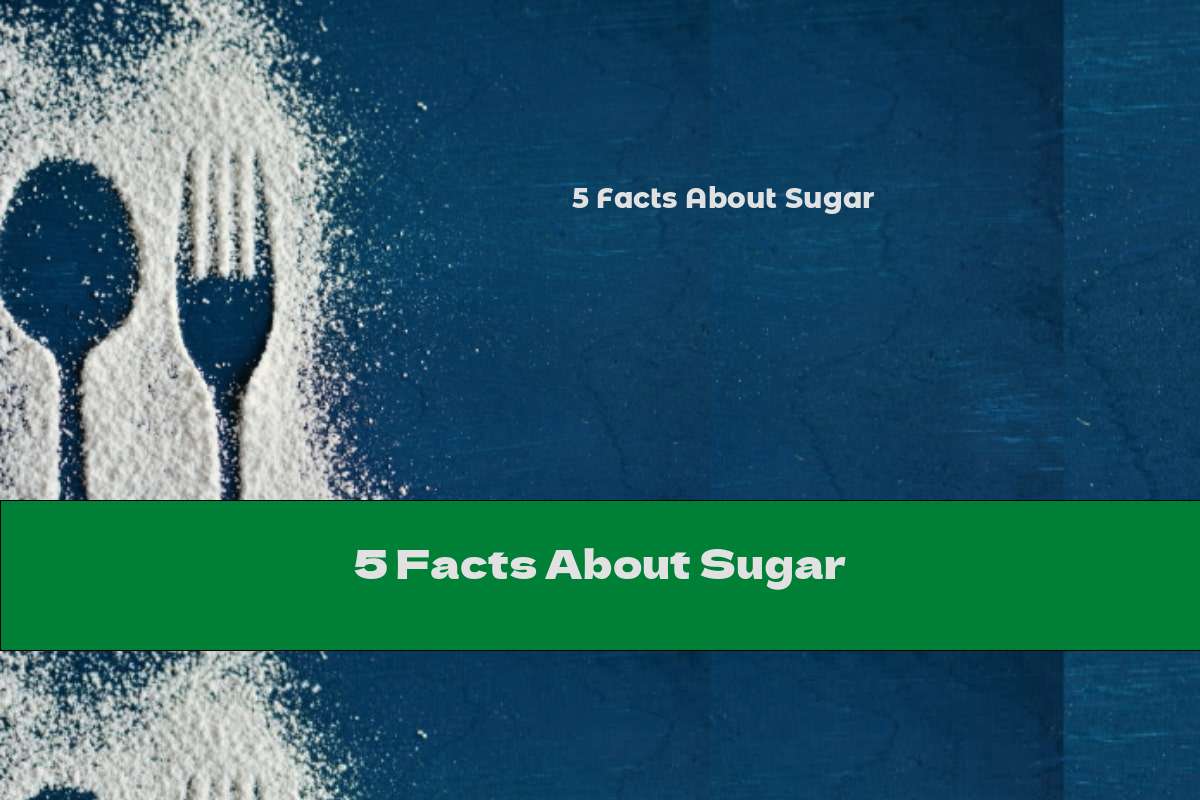5 Facts About Sugar
 Author: Dean Rouseberg
Time for reading: ~2
minutes
Last Updated:
February 21, 2026
Author: Dean Rouseberg
Time for reading: ~2
minutes
Last Updated:
February 21, 2026

CHAPTERS (Table Of Contents)
Let's find out what you need to know about sugar so that it stops being your enemy and turns into a pleasant addition to the diet.
Everyone talks about him, everyone is afraid of him, but it is almost impossible to exclude him from your life - he is everywhere. Even if you are the most scrupulous follower of healthy fats, you still consume sugar in one way or another , which is found in sugar substitutes and most common foods . Let's find out what you need to know about sugar so that it stops being your enemy and turns into a pleasant addition to the diet.
Hidden threat
According to statistics, sugar is added to 74% of all ready-made products that end up on store shelves. If you counted the few spoons you added to food or drinks during the day when calculating the sugar you ate for the day, this is self-deception. The norm of sugar consumption per day is 30 grams (6 teaspoons). But if you take into account snacks at work, desserts at lunch and sweet yogurts for breakfast, the real figure will turn out to be truly terrifying: on average, every resident of Ukraine eats a total of 100 to 140 grams of sugar per day. Track your own diet throughout the day, carefully writing down all the sugar in your food. Most likely, the result will pleasantly surprise you.
How it will be our way
To confuse attentive buyers, manufacturers use at least 61 synonyms for the word " sugar " on product labels. Among the most popular sweeteners are glucose, dextrose, maltose, molasses, sorbitol, fructose, barley malt and many types of syrups: from corn to cane.
Deceptive maneuver
One of the main sugar substitutes that inspires confidence in almost everyone is fructose. Despite the name, which causes associations with useful fruits, fructose has almost the same effect on the liver as alcohol: it destroys it and causes pathologies.
Big races
The claim that sugar helps to cope with a bad mood is not true. The quick effect of chocolate or cookies, whether it is a charge of energy or an attack of euphoria, is associated with an increase in the level of insulin in the blood, which is always followed by a sharp decline: because as a result, sugar drops below the norm, which leads to dizziness, apathy, fatigue, nausea , severe irritability and causes other symptoms of hypoglycemia.
PREMIUM CHAPTERS ▼
Mathematical analysis (PREMIUM)
Just 1 bottle of sugary soda a day increases the risk of dying from cardiovascular disease by about ⅓. The reason is obvious: very high sugar content . For example, 0.5 liters of Coca-Cola contains the amount of sugar equivalent to approximately 16 teaspoons.
Each of these points can be the cause of feeling bad or having problems with excess weight. No one is talking about completely eliminating sugar and its derivatives from the daily diet. Nevertheless, it is worth starting to more carefully monitor the amount of sweet food eaten and competently limit the number of desserts and products containing sugar - then the result in the form of an improvement in the state of health, skin, hair, and, therefore, mood will not make you wait. .
Related Articles
- The Ultimate Guide to 100g Beef Protein: Nutrition Facts, Recipes & More
- The Truth About E477 in Food: What You Need to Know
- E 631: What You Need to Know About This Food Additive
- Michelob Ultra Calories: A Guide to Nutrition Facts, Diets, and Recipes
- Carbs to Sugar Conversion: Understanding Types of Carbohydrates and Their Impact
Top Nutrition Articles Today
- . The Latest Food Pyramid: A Guide to Balanced Nutrition
- . Nutrition Guide: Importance of Food Pyramid, Meal Planning,...
- . The Role of Hydrochloric Acid in Digestion: A Comprehensive...
- . The Power of Chalk in Nutrition: Benefits, Recipes, and Tips
- . All You Need to Know About E471 in Food: Functions, Foods, H...
- . The Essential Macronutrients of Beans: Protein, Carbs, Fiber...
- . Libre2 Sensor Reset: Extending the Life of Your Glucose Sens...
- . The Nutritional Benefits of Quail: A Protein-Rich Superfood
- . List of Foods that Contain Carrageenan: A Guide to Avoiding...
- . Ascorbyl Palmitate: Benefits, Uses, and Precautions